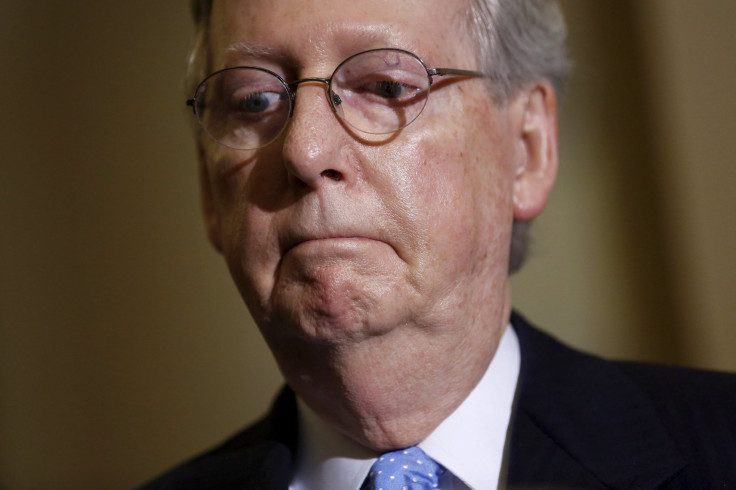Obama Trade Agenda: Senate Gives Final Passage To 'Fast Track' Authority

WASHINGTON -- The U.S. Senate voted Wednesday to approve Trade Promotion Authority -- a critical piece of President Barack Obama’s trade agenda -- by a vote of 60 to 38, overcoming repeated attempts by Democrats to defeat the legislation. The bill now heads to Obama for his signature, which is expected.
The Senate also passed a companion bill known as Trade Adjustment Assistance, which would provide training for American workers whose jobs are displaced through future trade deals. That bill must be passed by the House before being sent to Obama. A vote is scheduled for Thursday morning and is expected to pass with bipartisan support.
It was a victory for both Obama -- who had to fight with his own party to ensure passage -- and the Republican leadership, which was looking for accomplishments to credit to their takeover of the Senate. Supporters of the trade legislation praised Senate passage as a victory for bipartisan cooperation in Congress. And in a building that has been riddled with partisan divisions and an inability to get much done, passage of a comprehensive trade bill will likely be one of their biggest accomplishments of the session.
“Achieving this positive outcome was never going to be easy, but it proves that the power of a good idea, no matter where it comes from, can win out over the stasis of gridlock,” Majority Leader Mitch McConnell, R-Ky., said in a statement praising passage. “That’s why Republicans were glad to accept President Obama’s support in advancing a principle we’ve long believed in — that we ought to show our support for American workers by knocking down unfair foreign trade barriers that discriminate against products stamped ‘Made in the USA.’ We’re grateful for the president’s efforts to help us move this idea forward, and we applaud him for speaking truth-to-power to his base.”
Congressional Democrats had mounted an aggressive effort to sink the Trade Promotion Authority, known as TPA or “fast track,” will give the president more freedom to negotiate trade agreements and will limit the ability for Congress to amend or filibuster those deals. Led by Sens. Elizabeth Warren, D-Mass., and Sherrod Brown, D-Ohio, Democrats argued that a pending trade deal, the Trans Pacific Partnership, which will be eased by the fast-track authority, will cost American jobs, compromise environmental standards and not go far enough to protect human rights.
House Minority Leader Nancy Pelosi, D-Calif., had rallied her members to vote against the Trade Adjustment Assistance, or TAA, bill when it was in the House as part of an effort to sink the entire agreement. But even though she temporarily sank TAA, she wasn’t able to kill the entire deal. Pelosi told her caucus Wednesday that she will now support TAA and turn her attention to the TPP.
“I’m disappointed that the TAA bill isn’t nearly as robust as it should be in light of a trade agreement that encompasses 40 percent of the global economy,” she wrote to fellow Democrats. “While we have not all voted in the same manner, we all recognize that the next debate will be over Trans-Pacific Partnership itself and all members – on both sides of this debate – will shine a bright light on the provisions of TPP.”
Democrats also opposed TPA because it is valid for three years and is easily renewable for an additional three years. They argue that if a Republican wins the White House in 2016, Democrats will have little recourse to stop future trade deals from being enacted.
The deal had the backing of much of the business community, that praised passage as a crucial step toward more trade. “This is a landmark step toward tearing down trade barriers that stand in the way of a truly free and open global economy,” National Retail Federation President Matthew Shay said. “TPA will help complete trade agreements that will open new markets for U.S. companies and help retailers provide American families with the products they need at prices they can afford. This will ultimately mean more jobs for American workers and lower prices for American consumers. After weeks of partisanship, it’s refreshing to see Congress finally put good policy ahead of politics.”
© Copyright IBTimes 2025. All rights reserved.






















